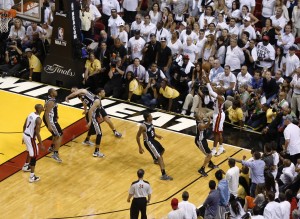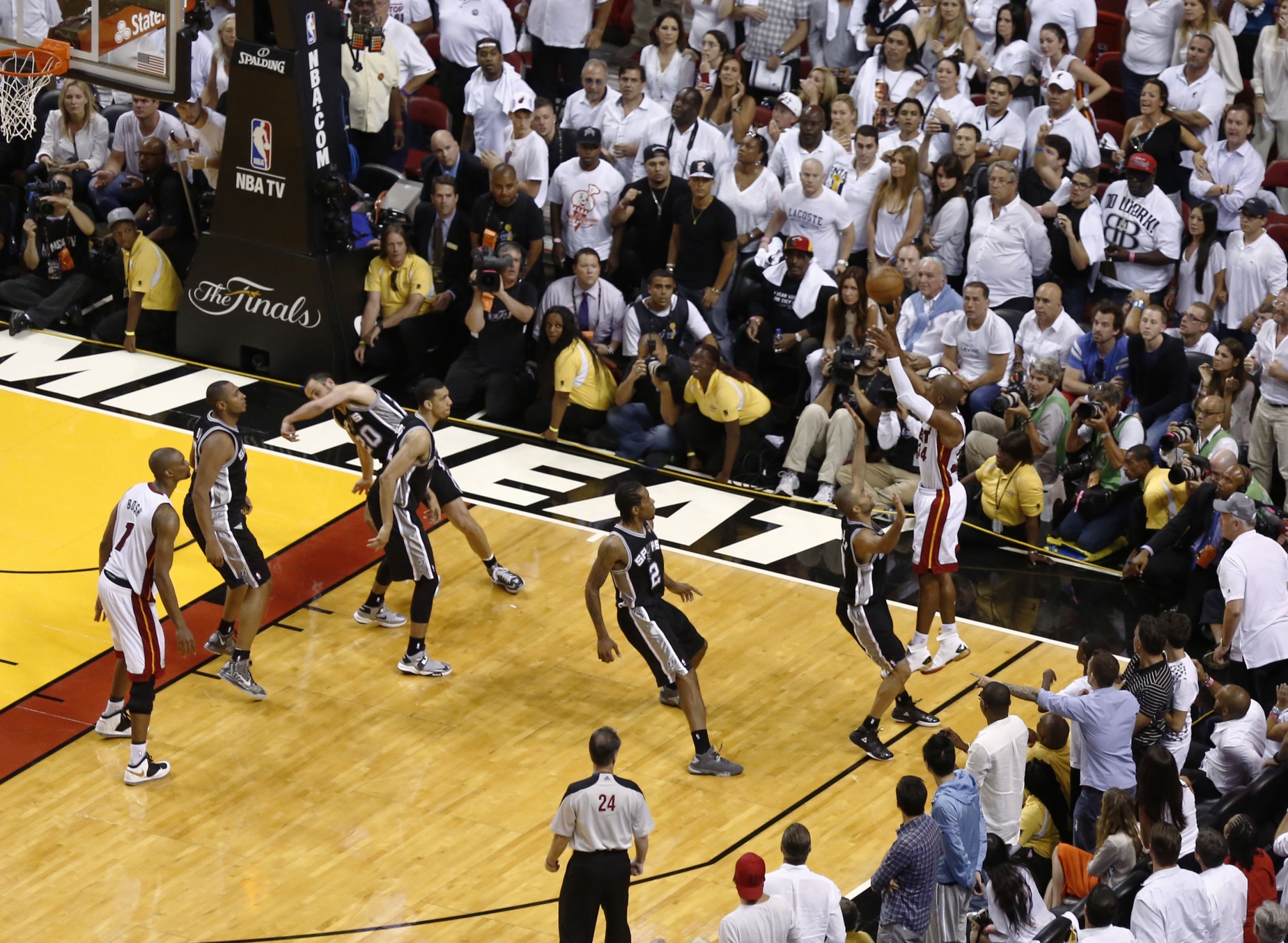The following Op-Ed article is a guest contribution from Jason A. Davis, Esq. All rights reserved. Follow him on Twitter @JasonDavisEsq1.

There are moments in life and in sports that can change a person, a team, a league or a sport in one single moment. These moments may be long awaited opportunities,or instances of bizarre circumstance that amount to a perfect storm. The results; however, are awe inspiring and overwhelming. In preparation for the epic win over the powerhouse soviets, Herb Brooks prepared his young U.S. Olympic hockey team with the statement that “Great moments… are born from great opportunity.” Such “opportunities” can be fought for or thrust upon you.
In game six of the 2013 NBA finals, a newly acquired Ray Allen found himself in the far corner with seconds left on the clock as he attempted a three point shot that would save the Miami Heat from elimination, and take the game into overtime. He shoots… swish. A moment, a memory, and now history.
Similarly, in the 2013 Stanley Cup Finals, the Chicago Blackhawks rallied late in game six to score 2 goals in 17 seconds. 17 seconds that changed the game, the series and determined the championship. There were 210 other blocks of 17 seconds in that game – but we remember these 17 seconds. A moment, a memory, and now history.
Personally speaking, a few years ago a film crew invaded our office to shoot a few scenes of a movie featuring Harrison Ford, Brendan Fraser and Keri Russell. Through a series of circumstances, I found myself as being an extra in the scene. For two days, I was able to stand next to, listen to, and watch Harrison Ford being filmed in a movie. There was one particular moment that I looked to my right, and standing inches away was Indiana Jones, Han Solo, Jack Ryan, and Dr. Richard Kimble. A moment, a memory, and now part of my history.
In essence, that’s what law, sports, and life are all about: moments. Moments become memories. Memories become our story. In the practice of law, timing and reaction (e.i., objections, time frames for responding, fleeting seconds to make a compelling closing argument, and other time sensitive actions and reactions) can make or break a case. A story is told by the action and reaction in these moments. Some moments are more memorable than others, but all moments combine to tell the history.
I believe we are in a critical moment in the world of sports. Unfortunately, the worlds of law and sport have been negatively colliding with increasing regularity. These instances include (but are not limited to) the following examples. A successful (and at the time) active member of an elite football club being charged with murder. Cycling, and baseball being flooded with doping scandals. Name any sport, and it seems to have its sore subject of an athlete going awry. It seems that it is more likely to hear a bad story about an athlete, than a good one. When did this change? Where did you go Joe DiMaggio? Where are the modern Pee Wee Reese and Jackie Robinsons? In the American psyche, the professional athlete is becoming more closely associated with self-promoting thugs than outstanding citizens and philanthropists (who also happen to be the most talented and well trained athletes in the country). The majority of athletes may be outstanding professionals, however they are being overshadowed by the “bad apples.”
Fans, Agents, players, this is a moment. Our moment. What will we do? How will we react? What will our involvement be to change the sport(s) we love? We, after all, are the revenue generators that purchase the tickets, the jerseys, the merchandise, and the products advertised in the television and radio coverage of the sports we support. What is our place in this economic community and sports ecosystem? Will we take a more active role, or sit idly by and watch our beloved sports deteriorate?
It is our time to seize the moment (Carpe Diem) and start demanding better quality character out of the athletes, who are worthy of our support. We must value (and financially award those teams that hire quality players), the honorable athlete who plays by the rules more than the “great athlete” who wins by cheating, doping, or engaging in criminal and/or immoral behavior. I for one would rather support a team/player that loses honorably, than a team/player that wins dishonorably.
We fans, agents, and others in positions of influence must start to take a little responsibility and place our money and support where our values are. Do we really value the thug that can win at all costs? Or do we value the disciplined athletes who can lose (or win) honorably by keeping the law and not doping/using performance enhancing drugs. This is OUR MOMENT. Who will we cheer for? Who will we support? How will history show how we reacted? We must take our place as a more active role. We must show the players that we have the power to change the sport and not tolerate doping, and other negative activities which would remove us from our jobs if we did the same. As Herb Brooks would say; “This is your time. Now go out there and take it.”
